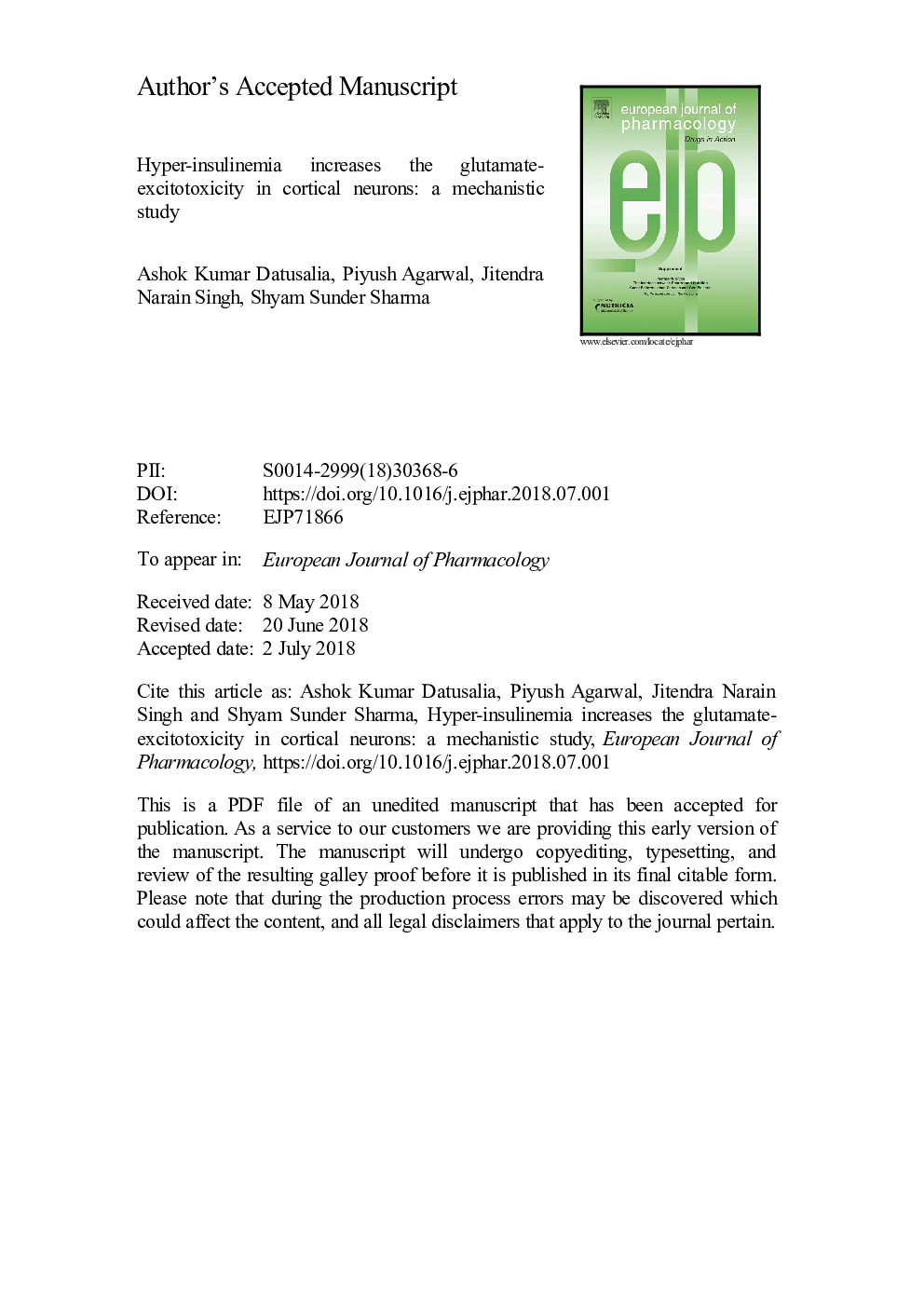| Article ID | Journal | Published Year | Pages | File Type |
|---|---|---|---|---|
| 8528932 | European Journal of Pharmacology | 2018 | 23 Pages |
Abstract
Insulin resistance in type-2 diabetic condition increases the risk of stroke and cognitive deficits in which involvement of glutamate has been postulated. It has been hypothesized that hyper-insulinemia in cortical neurons increases the vulnerability towards glutamate-induced excitotoxicity. To mimic insulin resistance, cortical neurons were incubated with high insulin (1â¯ÂµM) and high glucose (50â¯mM final concentration) in in-vitro condition for 24â¯h. Pre-treatment of cortical neurons with high insulin blocked acute insulin-induced activation of Akt and GSK-3β but not in the case of high glucose. Our results demonstrate that chronic high insulin exposure increases glutamate-induced excitotoxity, which was blocked by insulin receptor antagonist (S961) and GSK-3β inhibitor (SB216763). These inhibitors also ameliorated pAkt (Ser473) and pGSK-3β(Ser9) levels after chronic insulin exposure. Increase in glutamate-excitotoxicity in insulin-resistant cortical neurons was found to be associated with increased expression of PICK1. However, GluR2 did not get altered in hyper-insulinemia condition. This study demonstrates that hyper-insulinemia increases glutamate excitotoxicity which could be attributed to activation of GSK-3β and increased expression of PICK1.
Related Topics
Life Sciences
Neuroscience
Cellular and Molecular Neuroscience
Authors
Ashok Kumar Datusalia, Piyush Agarwal, Jitendra Narain Singh, Shyam Sunder Sharma,
